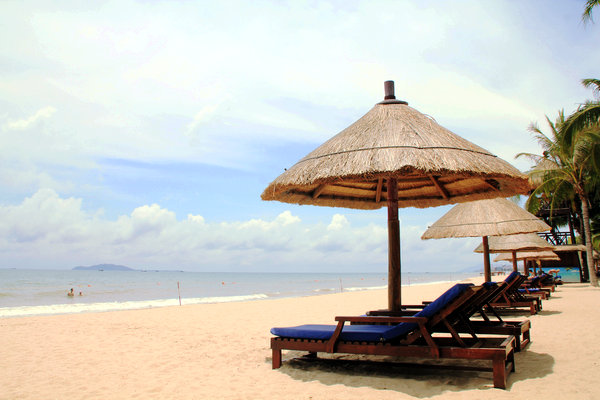Flying solo: Journeys of self-discovery
 0 Comment(s)
0 Comment(s) Print
Print E-mail China Daily, June 28, 2016
E-mail China Daily, June 28, 2016
|
|
|
Ting Lan, a white-collar young woman, travels alone to Yangshuo, the Guangxi Zhuang autonomous region; Kaili, Guizhou province; and Sanya, Hainan province. (Photo provided to China Daily) |
Mao Cheng, for one, calls group tours "boring" and solo trips enlightening.
He dislikes structure.
Mao took his first solo trip as a college freshman. He traveled for a month after graduating.
He has journeyed alone to the Tibet autonomous region, Sichuan province, the Inner Mongolia autonomous region's Hulunbuir Grassland and Europe.
"Traveling is a chance to know a different world and think in a different way," the 26-year-old Beijing resident says.
"Traveling alone is knowing and finding myself-and the courage to be myself."
Mao enjoys the flexibility. And random wanderings.
"I feel free and relaxed," he says.
"I talk with people I meet along the way and learn their stories."
Lone traveler Song Xing also venerates freedom and time to think.
"I don't need to compromise according to others' preferences," he says.
But solitude can bring loneliness and insecurity, the 30-year-old says.
Song has traveled alone to the Xinjiang Uygur autonomous region's Urumqi, Shandong province's Qingdao, Jiangxi province's Nanchang, Fujian province's Fuzhou, Qinghai province's Xining and South Korea's Seoul.
His main reason for going on his own is his trips' times didn't match his friends', he says.
The Beijinger travels three to 10 days per excursion.
He can flirt with girls and meet hospitable locals.
A Chengdu resident he encountered six years ago took him to savor the city's specialties and sights then not on tourists' radars.
He'll never forget such generosity.
"We're still good friends," Song says.






